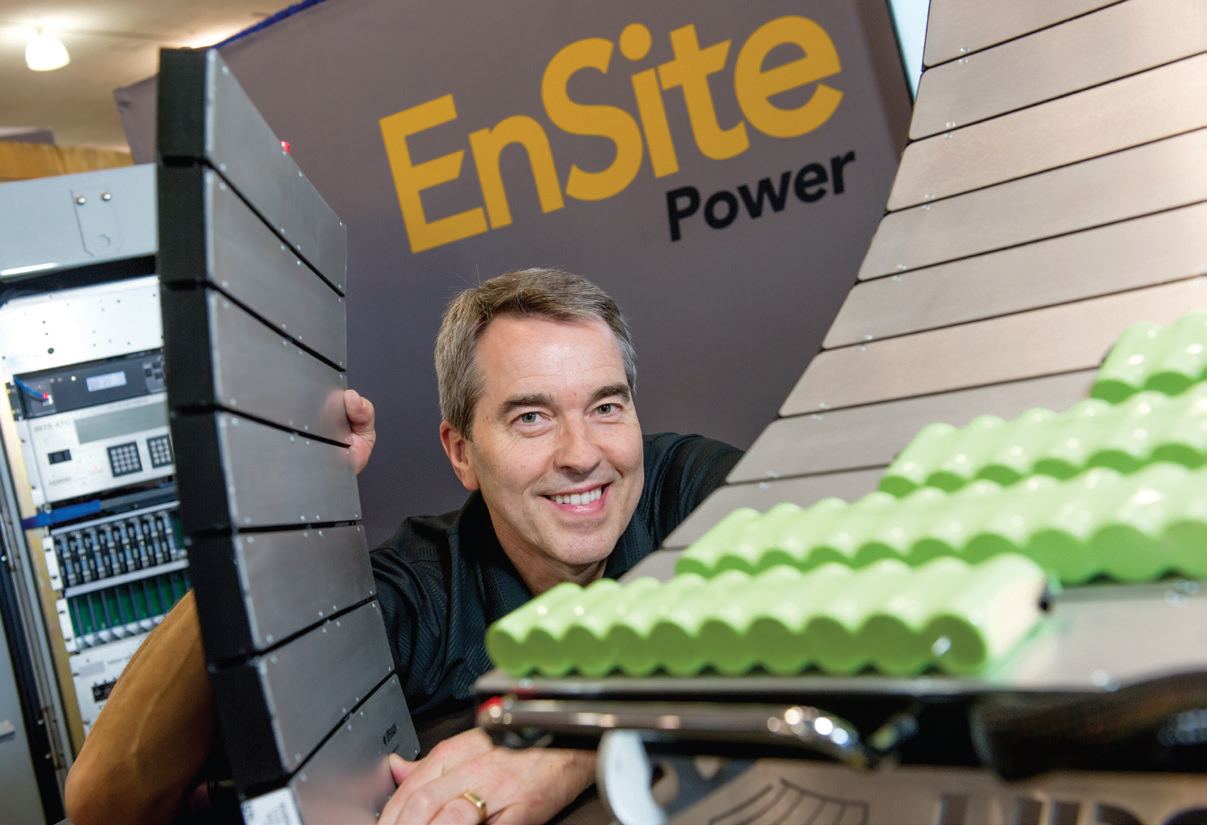
Pete Johnson of Ensite Power
As Vehicle to Infrastructure (V2I) technology proliferates our roadways and transit systems, the need to maintain a reliable power supply grows in importance, argues Pete Johnson of 8432 Ensite Power.
His argument is that if a utility goes down then whole transportation systems could collapse--snarling traffic, stranding riders and putting people's health at risk. Backup power can alleviate these risks but battery systems are traditionally expensive, unreliable and intrusive, taking up valuable real estate in cabinets while being bad for the environment.
Ensite Power's new Upstealth flexible battery systems bend to fit in dead space in a traffic signal cabinet--even between the rack and side--providing uninterrupted and non-intrusive power to traffic infrastructure. The backup battery systems' nickel-zinc chemistry is maintenance free and noncorrosive and releases little out gas. Ensite Power is actually new to the battery space, previously being a cabinet manufacturer. Engineers working for the company would often complain that the lead acid batteries that they were installing were unreliable and easily corroded. In a major pivot, the company sold off its cabinet business and started working on solving the backup power problem.
Years of research led it to the nickel-zinc chemistry--originally patented by Thomas Edison in 1901. According to Johnson, the batteries are 99 percent efficient, give off no heat and do not require cooling.
Johnson hopes that the company's pivot pays off this week at ITS America San Jose where he hopes to expose state DOT officials to the benefits of Ensite Power's green backup battery systems and their ability to keep transportation systems up and running--even in a power outage.
His argument is that if a utility goes down then whole transportation systems could collapse--snarling traffic, stranding riders and putting people's health at risk. Backup power can alleviate these risks but battery systems are traditionally expensive, unreliable and intrusive, taking up valuable real estate in cabinets while being bad for the environment.
Ensite Power's new Upstealth flexible battery systems bend to fit in dead space in a traffic signal cabinet--even between the rack and side--providing uninterrupted and non-intrusive power to traffic infrastructure. The backup battery systems' nickel-zinc chemistry is maintenance free and noncorrosive and releases little out gas. Ensite Power is actually new to the battery space, previously being a cabinet manufacturer. Engineers working for the company would often complain that the lead acid batteries that they were installing were unreliable and easily corroded. In a major pivot, the company sold off its cabinet business and started working on solving the backup power problem.
Years of research led it to the nickel-zinc chemistry--originally patented by Thomas Edison in 1901. According to Johnson, the batteries are 99 percent efficient, give off no heat and do not require cooling.
Johnson hopes that the company's pivot pays off this week at ITS America San Jose where he hopes to expose state DOT officials to the benefits of Ensite Power's green backup battery systems and their ability to keep transportation systems up and running--even in a power outage.





